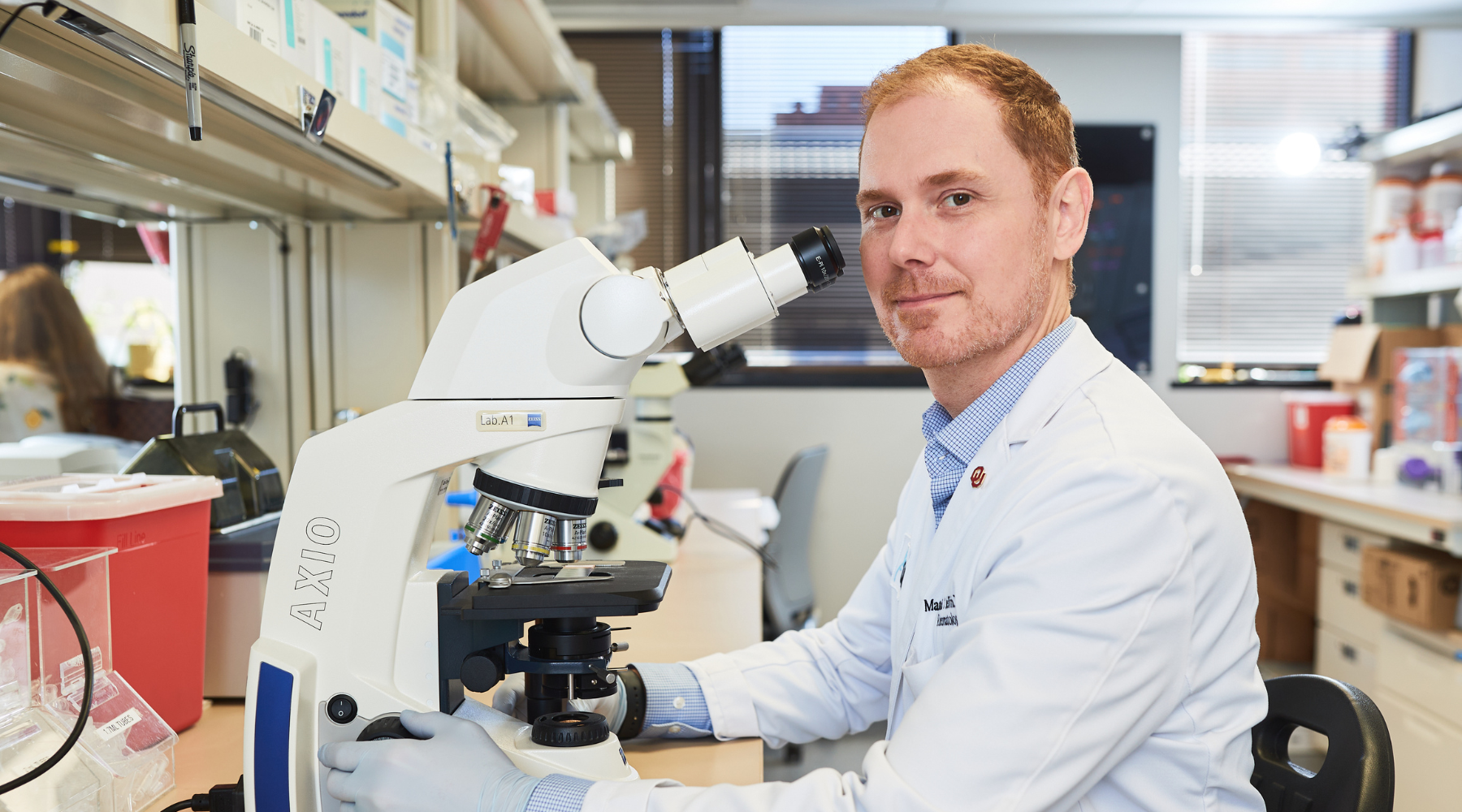A recent discovery at the Oklahoma Medical Research Foundation underscores a growing belief among scientists that arthritis is linked to our digestive system.
Physician-scientist Matlock Jeffries, M.D., found evidence that certain changes to our gut microbiome can protect against osteoarthritis, the nation’s most common form of disability.
The microbiome is the collection of all microbes, such as bacteria, fungi, viruses, and their genes, that naturally live on our bodies. Jeffries’ lab previously discovered that transplanting a healthy microbiome in research models can significantly improve cartilage healing.
His newer study went a step further. It involved two breeds of mice: a regular strain susceptible to OA, and a “super-healer” strain, so nicknamed for its regenerative qualities that have perplexed scientists.
“It had been assumed that the bone marrow was the origin of their healing ability,” Jeffries said. “We now think the microbiome is responsible, because when we transplanted microbiome from the super-healers into the gut of regular mice, those regular mice no longer developed OA.”
The result was surprising, he said. “I thought maybe it would give them some protection against OA, but not 100% protection.”
Furthermore, when the lab surgically induced OA and then quickly transplanted microbiome, the disease never manifested. Timing appears to be critical, Jeffries said, as a delayed transplant yielded no protection.
The implications for humans? “Based on the data, we would need to intervene as soon as a patient develops OA symptoms,” Jeffries said.
Because thousands of bacteria species live in the microbiome, he said the next step is to determine whether the protective quality comes from a specific one or from the entire community.
“If we can nail down a particular species, or even a few, that appear to be protective against OA, I can envision a clinical trial testing a probiotic on humans,” Jeffries said.
To advance this research, Jeffries’ lab collects microbiome samples from research volunteers who donate them through OMRF’s new OA clinic. For more information about participating in this or other research studies, call 405-271-7745 or email clinic@omrf.org.
This research has the potential to be “transformative,” said OMRF Executive Vice President and Chief Medical Officer Judith James, M.D., Ph.D. “Dr. Jeffries’ work is building a record of proof that the microbiome plays a role in this devastating disease.”
The research journal Annals of Rheumatic Diseases recently published Jeffries’ discovery. His study was supported by grants K08 AR070891 and R61/R33 AR078075 from the National Institute of Arthritis and Musculoskeletal and Skin Diseases, part of the National Institutes of Health, and by grant No. PR191652 from the Congressionally Directed Medical Research Program.




